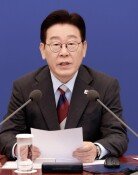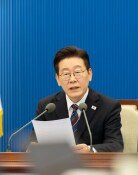[Contribution] New economic team fosters hope
[Contribution] New economic team fosters hope
Posted August. 08, 2000 12:33,
The cabinet reshuffle Monday that yielded a reorganized economic team has drawn much attention in the public. Many are of the opinion that the reorganization did not stem from some inherent fault of the outgoing members.
Many will agree that former Minister of Finance and Economy Lee Hun-Jai has faced tremendous pressures and dilemmas during his tenure as minister and as the chairman of the Financial Supervisory Service. Even so, he has successfully brought about various structural reforms in the financial institutions, as well as private industries.
This is not to say that the reforms were faultless. There have been many backlashes from various sectors of Korean society, as the reforms faced a trial-and-error phase during the early period of the economic crisis.
However, when comparing Korea`s reform policy and its success with that of other nations that suffered similar crises, all would agree that Korea is on a firmer ground and on the road to success. Taking into consideration the accumulation of reform weariness, which has caused relentless pressure and stress during the past two years, and as the current administration faces a new phase of closing the chapter on reform and bringing on a new era of economic security, the cabinet reshuffle is understandable.
However, it is of utmost importance that the president and the newly appointed members of the economic team keep the following in mind.
First, prior to the official appointments, many observers and vernaculars had speculated for the top economic team post of the minister of finance and economy, that should Chong wa dae consider economic security to be of priority, "Mr. A" would be chosen. Conversely, if Chong wa dae considered reform to be of priority, "Mr. B" would be chosen.
They had given the public the impression that reform and security were on the opposite sides of the coin. However, economic reform and security are not incompatible; rather, they are complementary.
Simply put, a process of successful reform brings security. It can be said that reform and security have a rather direct relationship. As such, should the newly appointed minister of finance and economy honestly desire economic security, he must first put his effort toward completing the chaebol reform, including the Hyundai crisis, and the financial institution reform to remove all non-profitable financial institutions. Without doubt, such continuation of the reforms will bring about much backlash and side effects.
However, the economic team must realize that foregoing the growing pains of the reforms and opting for a simple cover-up-the-cracks policy would not be unlike planting the seeds of yet another economic crisis in the days ahead.
Second, the newly appointed team needs to have a long-term vision to examine the role of the government after the completion of the reforms.
Since the crisis two years ago, the government has been deeply involved in the financial shakedown and corporate reform. As the crisis was unprecedented and dangerous enough to topple the whole economy, the majority of the economists acknowledged the necessity of government intervention for the recovery of the Korean economy.
However, it is no longer the case. Once the government successfully pushes through with the reforms, it is time for it to make an exit and let the market forces rule. For such to happen, the heads of the economic teams first must trust the health of the market forces and set an example of non-intervention.
Third, as the current administration faces the second half of its tenure, it will without doubt begin to focus its attention on the 2002 presidential election.
In addition, many economic forecasters have predicted that the economy gradually will slow starting early next year. Such a slowdown during an election period in nations more developed than Korea leads to a greater political influence on economic policies. Korea is expected to witness such a phenomenon next year.
In addition, there is a high possibility of the newly appointed economic team being requested by the ruling party to implement policies of benevolence in an effort to ¡°pump prime¡± the election.
The newly appointed team must have the resolve and courage to shield itself from such political pressures. In addition, the executive must act as the political shield for the economic chiefs to carry out their reforms and policies.
Many say that the Korean economy is in a constant transition. Such can be brushed off without much thought. However, it is a testament to the tremendous forces of change wrought on the Korean economy. The new economic team will become the helmsman for the direction of the Korean economy. All eyes are on the new team, as they hope for the new members to stay on the straight and narrow, unaffected by political pressures, and carry through with the reforms to resuscitate market stability.





![아침 공복 따뜻한 물 한 잔, 정말 살 빠지고 해독될까?[건강팩트체크]](https://dimg.donga.com/c/138/175/90/1/wps/NEWS/IMAGE/2026/03/05/133467930.3.jpg)

